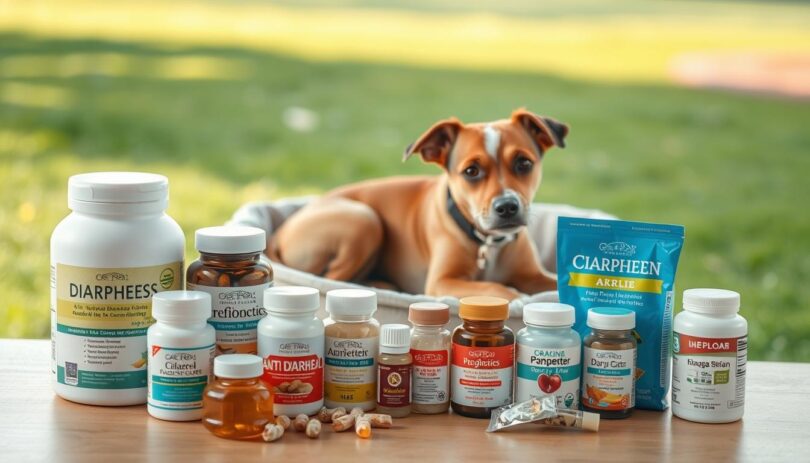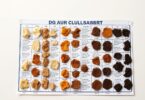As a pet owner, there's nothing more concerning than seeing your furry friend experience digestive issues. Diarrhea in dogs is more than just an inconvenience—it can signal underlying health concerns that need attention. Whether it's a sudden onset or a recurring issue, understanding the causes and knowing how to respond is crucial for your pet's well-being.
Diarrhea in dogs is a common symptom that can arise from various factors, ranging from dietary indiscretions to more serious health conditions. It's important to recognize that diarrhea itself isn't a disease but rather a sign that something is amiss. By monitoring your dog's behavior, stool quality, and overall health, you can take proactive steps to address the issue early.
In this guide, we'll walk you through everything you need to know about dog diarrhea. From identifying the signs and symptoms to exploring home remedies and when to seek professional help, we've got you covered. Our expert advice will empower you to make informed decisions and ensure your pet receives the care they deserve.
By the end of this article, you'll be equipped with the knowledge to recognize when your dog's diarrhea is a minor issue or a sign of something more serious. We'll also discuss the importance of consulting a veterinarian and provide practical tips for supporting your dog's recovery.
– Diarrhea in dogs can indicate various health issues, from mild to severe.
– Monitoring your dog's symptoms and stool quality is essential for early intervention.
– This guide provides expert advice on home remedies and when to seek veterinary care.
Recognizing the Signs and Causes
Diarrhea in dogs can stem from various factors, making it crucial for pet owners to identify both the symptoms and underlying causes. Understanding these elements helps in providing timely and effective care.
Common Triggers and Dietary Indiscretion
One of the most frequent causes of diarrhea is dietary indiscretion. Dogs often ingest items they shouldn't, such as spoiled food or trash, leading to gastrointestinal upset. Infections, whether viral like parvovirus or bacterial, can also cause diarrhea. Additionally, parasites like giardia are common culprits. These issues often manifest through changes in stool quality.
Identifying Changes in Stool Appearance
The appearance of your dog's stool can provide critical clues. Watery consistency, presence of blood or mucus, or changes in color can indicate the severity of the issue. For instance, blood may suggest an infection or inflammation, while mucus could signal a parasitic infection. Monitoring these changes helps determine if the diarrhea is a minor issue or a sign of a more serious condition.
Recognizing these signs early can guide whether home care is sufficient or if a vet visit is necessary. For more detailed guidance, visit this resource on understanding diarrhea causes.
Immediate Home Remedies and Diagnostic Steps
When your dog experiences mild diarrhea, there are several home remedies and diagnostic steps you can take to help manage the situation effectively. These steps not only provide comfort to your pet but also help determine if a vet visit is necessary.
Implementing a Fasting and Bland Diet Protocol
A common first step in managing mild diarrhea is withholding food for 12-24 hours. This allows the gastrointestinal tract to rest and recover. During this fasting period, ensure your dog has constant access to fresh water to stay hydrated. After the fasting period, introduce a bland diet of boiled white rice and plain, boneless chicken. These foods are easy on the stomach and can help stabilize your dog's digestive system.
Monitoring Symptoms and Hydration Levels
During this process, it's crucial to monitor your dog's symptoms closely. Look for signs of dehydration, such as dry gums, sunken eyes, or a lack of energy. If you notice any of these signs, contact your vet immediately. Additionally, keep an eye on your dog's stool quality. If the diarrhea persists for more than 72 hours or is accompanied by blood or mucus, seek professional veterinary care.
These home remedies and monitoring steps provide a clear guideline to help your dog recover while determining if further veterinary intervention is needed.
Effective Actions When Your Dog Has Diarrhea
It's important to know when your dog's diarrhea requires more than home care. While an isolated episode may resolve on its own, certain symptoms signal the need for professional veterinary attention.
Determining When to Call the Veterinarian
If your dog experiences repeated episodes of diarrhea, it's a clear sign that professional care is needed. Lethargy, vomiting, or the presence of blood in the stool are critical indicators that the issue is more severe than a minor digestive upset. These symptoms suggest underlying conditions that require a veterinarian's expertise.
Monitor your dog's condition closely over 24 to 48 hours. If the diarrhea persists or worsens, contact your vet immediately. Additionally, if your dog shows signs of dehydration, such as dry gums or sunken eyes, seek veterinary care without delay. Persistent diarrhea can lead to dehydration and other complications, especially in puppies or older dogs.
For more detailed guidance on recognizing serious symptoms and understanding when veterinary intervention is necessary, visit this resource. Early intervention is key to preventing complications and ensuring your dog's recovery.
Advanced Treatment Options and Long-Term Management
Managing persistent diarrhea in your pet requires a comprehensive approach that goes beyond home remedies. Advanced treatment options and long-term management strategies can help restore your dog's health and prevent future episodes.
Medication, Probiotics, and Professional Interventions
Veterinarians often prescribe medication to address underlying conditions. Antibiotics may be used for bacterial infections, while anti-parasitic drugs can treat issues like giardia. Probiotics are also commonly recommended to restore gut health and balance.
Studies show that probiotics can reduce the duration and severity of diarrhea. For instance, probiotic pastes have been shown to decrease diarrhea duration to a median of 32 hours compared to 47 hours with a placebo.
Understanding Diagnostic Tests and Underlying Conditions
Diagnostic tests such as blood work, fecal exams, and X-rays help identify conditions like inflammatory bowel disease or liver issues. These tests guide targeted treatments and ensure your dog receives appropriate care.
For example, blood work can detect liver disease, while fecal exams can identify parasites. These diagnostics are crucial for effective treatment plans.
Preventive Measures and Lifestyle Adjustments
Preventing diarrhea involves a combination of proper diet, parasite control, and stress reduction. Feeding a high-quality, easily digestible diet can help maintain a healthy digestive system. Regular veterinary check-ups and parasite prevention medications are also essential.
Learn more about maintaining your dog's digestive health by visiting this resource.
By working closely with your veterinarian and implementing these strategies, you can help your dog recover and prevent future episodes of diarrhea. Always consult your vet before giving your dog any supplements to ensure they are safe and effective.
Wrapping Up: Final Expert Advice and Next Steps
When addressing your dog's digestive issues, vigilance and proactive care are key. As outlined in this guide, early detection and timely intervention can make a significant difference in your pet's recovery.
A bland diet of boiled rice and chicken is often the first step in managing mild cases. Monitor your dog's symptoms closely, especially for signs of dehydration or persistent diarrhea. If symptoms linger beyond 72 hours, it's crucial to consult a veterinarian.
For long-term health, consider your dog's diet and environment. High-quality food and stress reduction can prevent future episodes. Always transition foods gradually and avoid potential irritants.
Remember, while home care can help, severe or persistent symptoms require professional attention. Don't hesitate to seek veterinary advice to ensure your dog's well-being and prevent complications.
By following these guidelines and staying attentive, you can help your dog thrive and enjoy optimal health.
FAQ
What are the most common causes of diarrhea in dogs?
Diarrhea in dogs can be caused by dietary indiscretion, infections, parasites, food allergies, or underlying health conditions like inflammatory bowel disease. Consult a vet to identify the root cause.
How long should I wait before taking my dog to the vet if they have diarrhea?
If your dog has diarrhea for more than 24-48 hours, shows signs of dehydration, vomiting, or blood in the stool, seek veterinary care immediately. Puppies and senior dogs require urgent attention.
What is a bland diet for dogs with diarrhea?
A bland diet typically consists of boiled white rice and boneless, skinless chicken. This simple diet helps soothe the digestive tract and firm up stool. Always introduce it gradually.










Leave a Comment